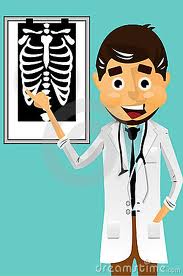 Most small town doctors have experienced something similar to the story related below. It got me thinking about how often we all criticize doctors and I am as guilty as anyone else. I wonder how many of us realize how much pressure doctors and psychiatrists are under. Many doctors make life and death decisions daily. Psychiatrists have to take decisions without ever having performed a single test that we are familiar with, so their decisions must be even harder to take. Nobody is perfect and we all make mistakes is the lesson to be learned here. To err is human, to forgive, divine.
Most small town doctors have experienced something similar to the story related below. It got me thinking about how often we all criticize doctors and I am as guilty as anyone else. I wonder how many of us realize how much pressure doctors and psychiatrists are under. Many doctors make life and death decisions daily. Psychiatrists have to take decisions without ever having performed a single test that we are familiar with, so their decisions must be even harder to take. Nobody is perfect and we all make mistakes is the lesson to be learned here. To err is human, to forgive, divine.
Here is the story: It was a particularly vile night in that small town. The wind howled, rain lashed down wildly from every direction and in the middle of this storm, the psychiatrist received a heartrending call from a family he was treating, who claimed that they were unable to cope with an extremely sick daughter who was threatening to jump from the small balcony leading off her bedroom. Their garden had turned into a lake and her parents were very concerned for her safety. Her father implored the doctor to make a house call right away. The year was 1993. In the manner of doctors then, the psychiatrist bundled up warmly and drove slowly and carefully during the forty-minute-drive to the given address. The patient’s father was waiting for him at his front door, holding up a lantern to light the way. He greeted the doctor with; ‘I am so grateful to you for coming, doctor, sir. It is such a vile night that I doubt whether I would even let my dog out in this kind of weather!”






